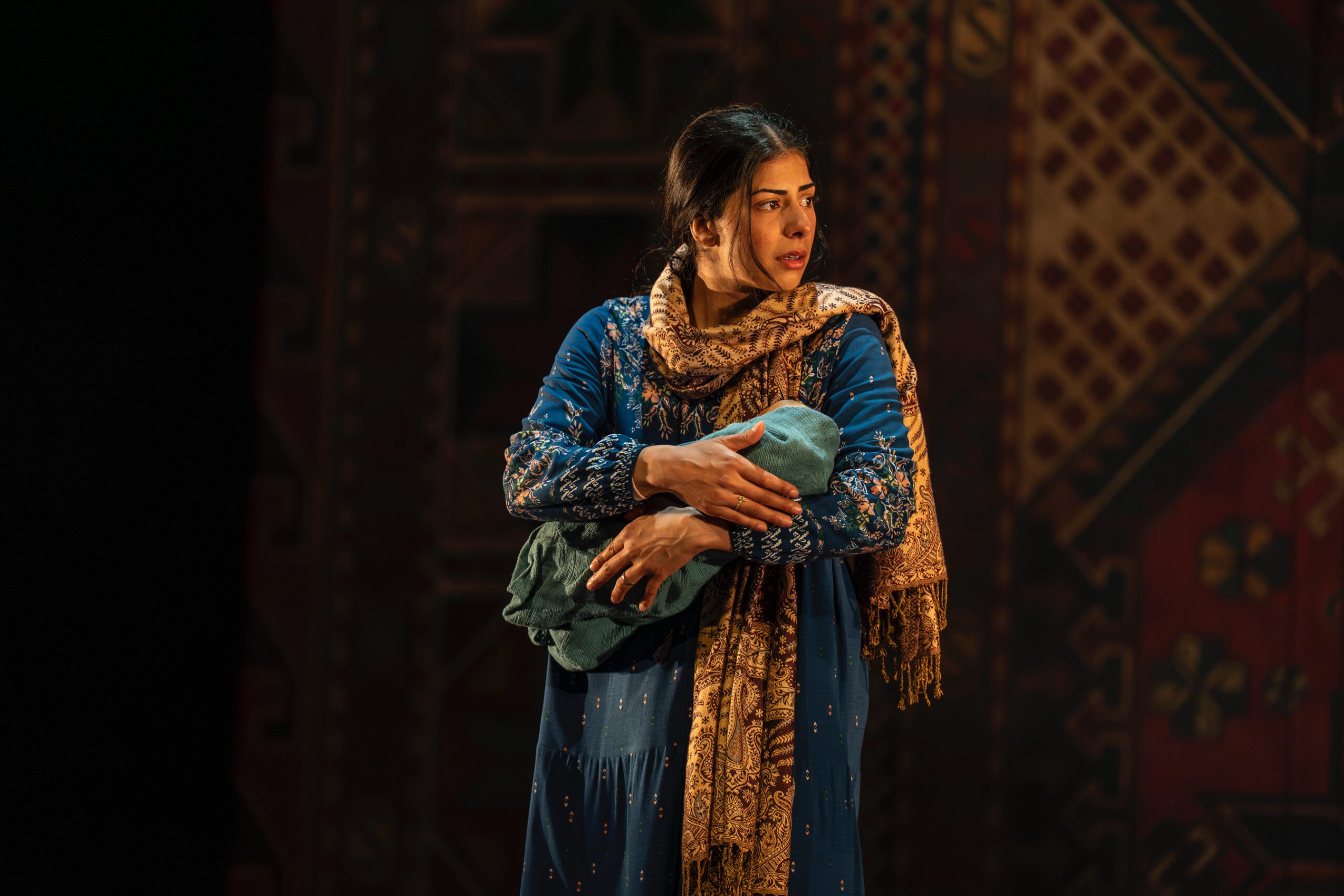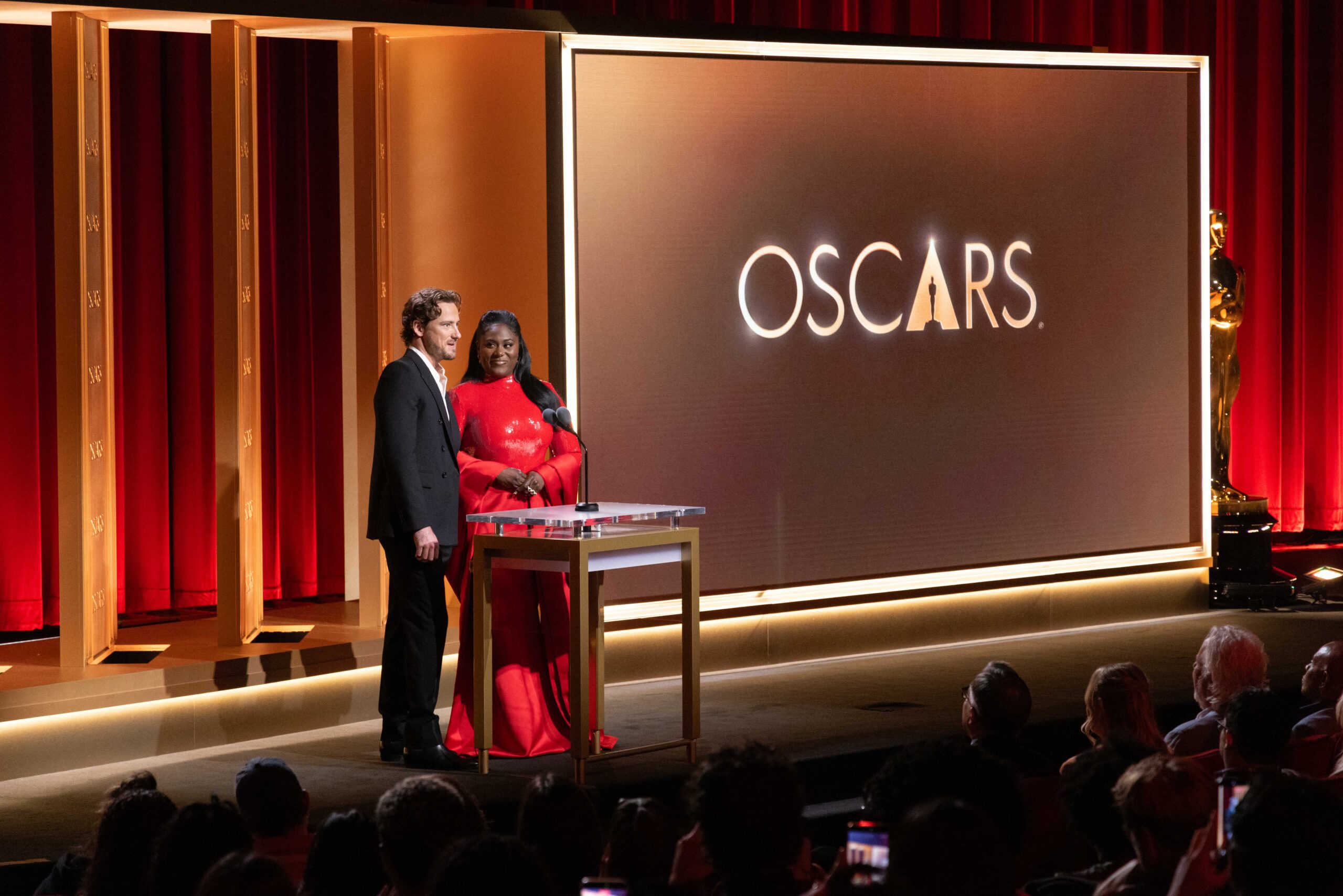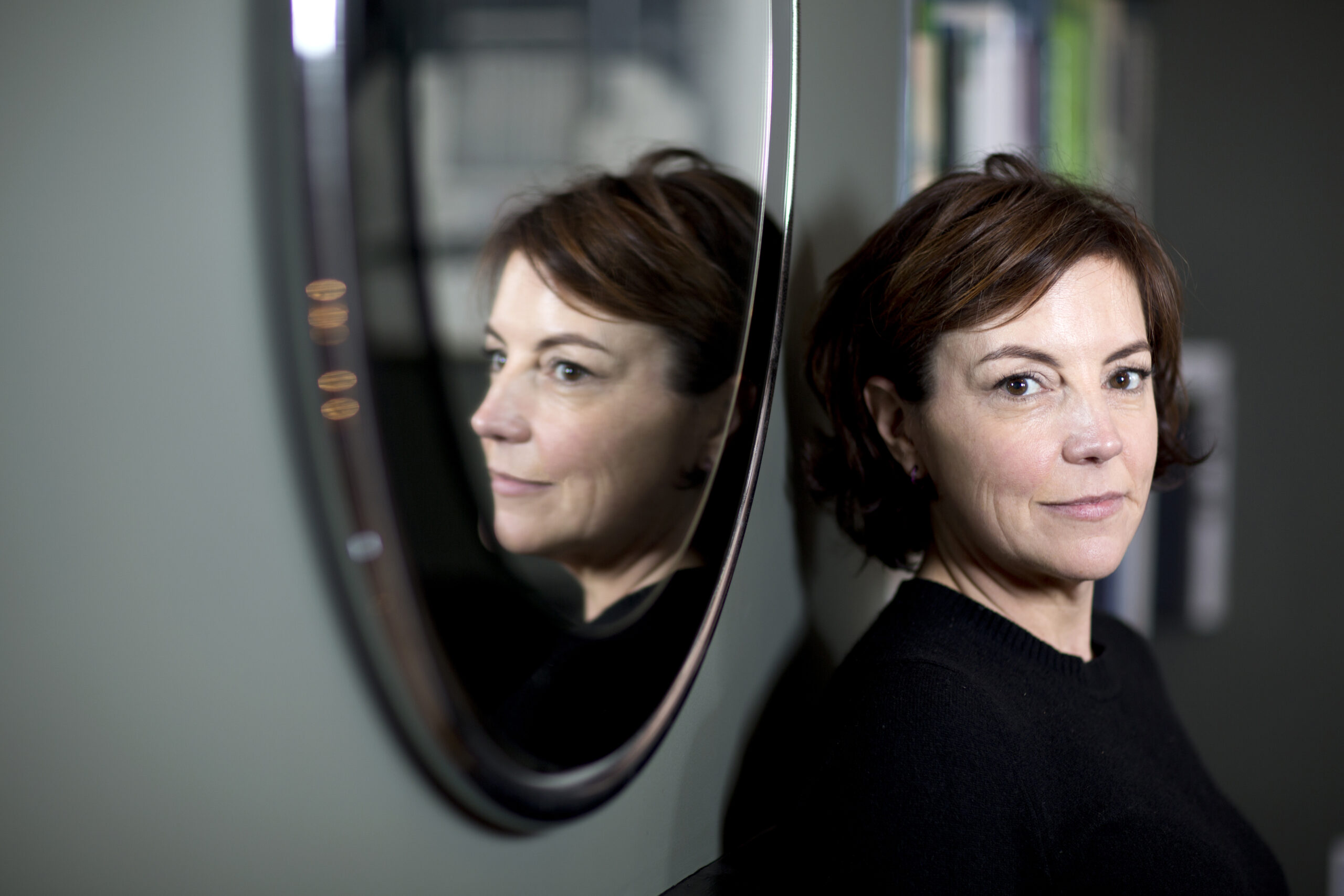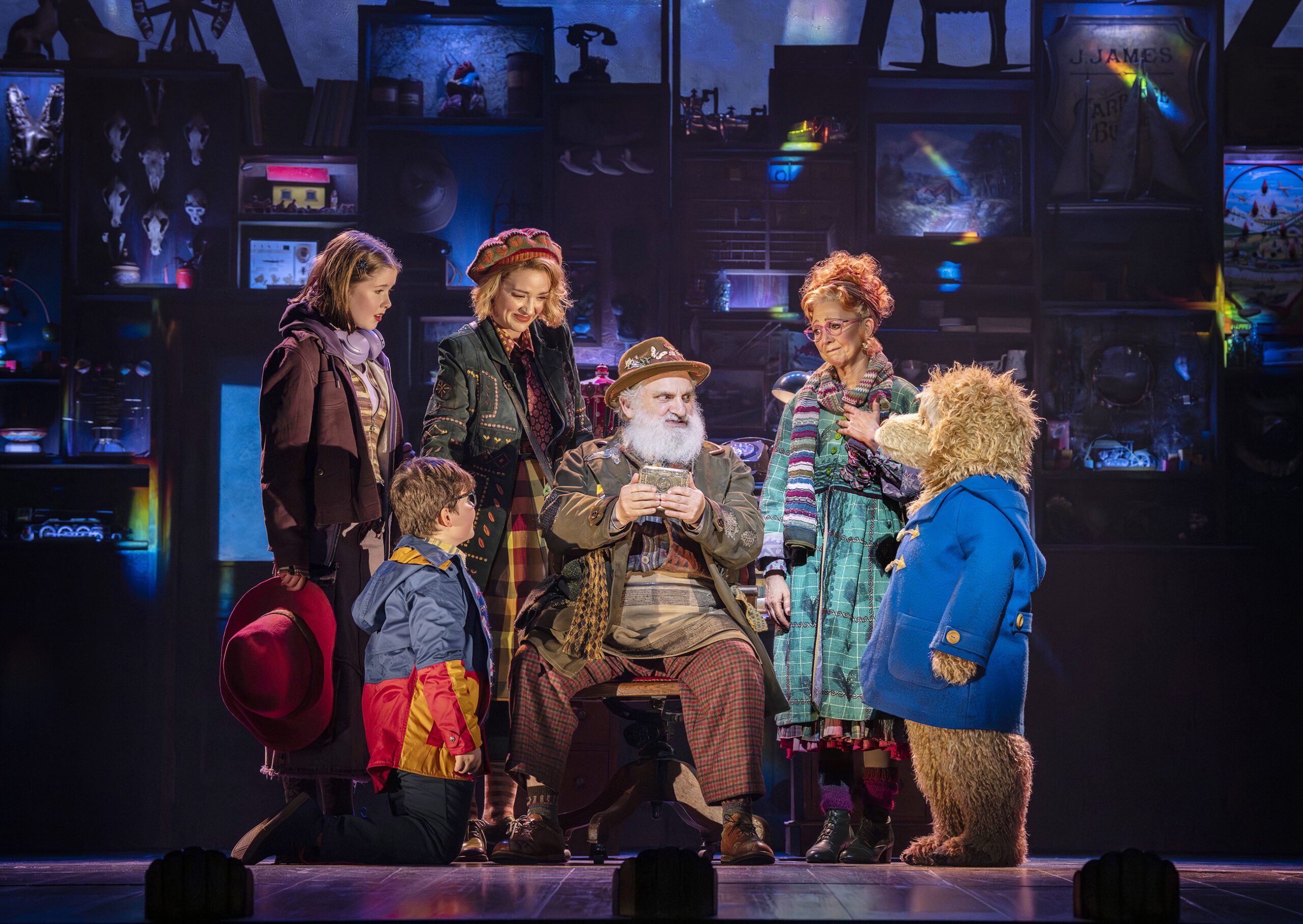Kerena Jagpal discusses working on the upcoming feature film ‘100 Nights of Hero’, playing ‘Laila’ in ‘A Thousand Splendid Suns’ and why she gravitates towards projects that tell the stories of resilient women.
A British South Asian actor from a Punjabi background, Kerena Jagpal spent three years training in a studio, in the Oxfordshire countryside at the Oxford School of Drama. The Birmingham native recently played ‘Laila’ in the stage adaptation of Khaled Hosseini’s novel A Thousand Splendid Suns, directed by Roxanne Gilbert and co-produced by the Birmingham Rep, Leeds Playhouse and Nottingham Playhouse.
Since graduating in 2021, she has performed at Camden Fringe, in two UK theatre tours and productions of Community (written by Farrah Chaudhry), Mismatch and Twitch as part of the Sky Comedy Rep Festival.
Kerena’s television credits include Outnumbered: Christmas Special (BBC), 3 Body Problem (Netflix) and, in what she describes as a “full circle moment”, acting opposite Parminder Nagra in DI Ray (ITV). She is set to star in the upcoming feature film 100 Nights of Hero (Erebus Productions and Project Infinity), written and directed by Julia Jackman, based on the graphic novel by Isabelle Greenberg and starring Emma Corin, Nicholas Galitzine, Charli XCX, Felicity Jones and Richard E. Grant.
In celebration of South Asian Heritage Month, we interviewed Kerena about her approach to acting and how her heritage has been deeply intertwined with the roles she plays, inspired primarily by the fierce Punjabi women she was raised by.
Here’s what she had to say:
Hi, Kerena! What was your earliest inspiration to pursue acting?
I always had a lot of energy as a kid and although I was often shy around people, I found huge confidence in doing anything creative. My mum used to put me in different summer classes whilst she was working and then I found out about a local youth theatre, so I wanted to try my hand at that.
Acting stuck with me. I can thank community organisations for my inspiration. I also spent my childhood watching movies every weekend with my family – a quick trip to the local DVD rental shop to get a couple of films. That must have subconsciously shaped my interest.
You trained at the Oxford School of Drama. What was your experience like and how important do you think it is for actors to have formal training?
Despite being in my second year when COVID hit and graduating into an industry that had come to a standstill, I had a great experience. For me, it was really important to be fully immersed in training for a few years to help hone the skills I needed to ensure longevity in this career. I definitely got that, spending three years in a studio in the Oxfordshire countryside. It allowed me the space and time to learn and unlearn the limitations of my mind and body and prepared me as much as it could for the industry. It’s like learning to drive – you learn the functions and it’s then when you’re on your own, getting real-life experience, that shapes you up to be great.
Formal training is not a must. Go because it’s truly right for you and your needs. There are and always have been phenomenal actors in the industry who haven’t had any formal training but have incredibly natural and instinctual skills that serve them well. There are also many ways to get that training outside of big institutions: workshops, initiatives and theatres or groups that provide classes.
As a British South Asian actor from a Punjabi background, how important is your heritage to the work you do as an actor?
Punjabi culture is full of storytellers – whether it’s families at gatherings, battling to get the biggest laugh or cry in their version of the same story, or the rich history of music, dance and poetry that carries the tales of our land and people. It’s important to my work to make sure the culture I come from is recognised and celebrated because it has contributed massively to the arts and British culture as we know it.
Here, in Britain, South Asian stories are our collective history, irrespective of ethnic background and the more stories we can enjoy, the more we come to learn this. Hopefully, that can make a difference in how we understand one another.
I also really gravitate to projects that tell the stories of resilient women. I believe that is a direct connection to my heritage – women in Punjabi culture are some of the most resilient and fierce women, especially the ones I was raised by – ‘Sherniyan’ (‘Lioness’). I think there’s a false, colonial perception that South Asian women are docile, meek and victims, which is so far from what I know. So I hope, in the projects I take on, I am able to keep subverting these ideas, whether the project is about South Asians or not.
You’re starring in the upcoming feature film ‘100 Nights of Hero’. What can you tell us about your role and how you prepared for filming?
100 Nights of Hero is an adaptation of the graphic novel by Isabelle Greenberg – a feminist fairytale inspired by ‘One Thousand and One Nights’. My character is one of three sisters who grew up in a patriarchal empire, in an imagined medieval world.
It was a delight to prepare for this role and it was easy with the help of the already richly imagined stories of Isabelle Greenberg’s novel and Julia Jackman’s (writer and director) film script. The story can be seen as allegorical and therefore, I found there was a lot to draw from in the world as we know it.
The film stars Emma Corrin, Richard E. Grant, Felicity Jones and Charli XCX. What was it like to work with such a phenomenal cast?
It’s a great privilege to work on a project with such talented and revered artists. I count my lucky stars to have had such a beautiful filming experience with all the cast and creatives. It’s a very cool team – I had a lot of fun!
You recently finished a successful run of ‘A Thousand Splendid Suns’ at the Birmingham Rep Theatre. What was that experience like?
It was a transformative experience, one that I’m truly grateful for. It was my first time playing on the main stage at The Rep and in such a role. It’s also my hometown, so I couldn’t have been more proud. Despite the challenges of telling such a difficult story, every day I was driven by the heart of these characters to resist subjugation and fight for themselves, one another and love. And with the Taliban back in power today, there is a real urgency to tell this story.
It was also so easy to come to work every day with such a brilliant cast and creatives. It was the perfect team. I think a massive contribution to the success was the chemistry between us all, on and off stage.
We also had a really interesting dialogue about the subject matter that arose on the internet as a result of us doing this show, which I found widened and deepened my own understanding of Afghanistan. I really appreciated that. I hope those who came to see it (and those who didn’t) take time to truly understand the grave situation happening in Afghanistan today and support more artists and intellectuals, especially Afghan women whose voices need to be heard and raised. One particular artist is the formidable musician Elaha Soroor, who composed the music for the show.

Kerena Jagpal and Rina Fatania in ‘A Thousand Splendid Suns’ at Birmingham Rep Theatre / Image credit: Ellie Kurttz
What advice do you have for actors working in theatre about the preparation and research process for a role?
The script is your best friend and, in [the case of A Thousand Splendid Suns], the novel. It’s something that gets said a lot, but the clues are all in the text. Enjoy being an investigator and examining it. From there, you will know where to go with your research. With this show being a historical piece, I carved out the timeline the story existed in and then went away to research all the context. You’re then more prepared to understand the choices your character makes and who they are.
Draw from your own lived experience as research to inform the choices you make for your version of this character. Then, in performance, let go of all that information and trust that it is there to inform you. The research is there to support you, but your job is to tell the story of your character.
You’ve also played roles on television in ‘DI Ray’, ‘3-Body Problem’ and ‘Outnumbered’. For you, what’s the best approach to playing a character on screen as opposed to on stage?
I typically approach the way I prepare the characters the same, for example, the detail in script work and creation of imaginative worlds. The major difference is the physical performances, of course, because of the formats. The smaller, more nuanced detail that beautifully colours performances on screen can be found in the rehearsal room, but then will need to be adapted to the stage you are performing on. With screen work, I try to let the inner world do most of the work.
One of your first on-screen credits was working with British South Asian Actor Parminder Nagra in ‘DI Ray’. What was that experience like?
Starting my career with this credit felt like a full-circle moment. We all grew up on the beloved film Bend It Like Beckham, but as a young Punjabi girl from the West Midlands, it was even more special to have Parminder Nagra portray such a cool and relatable character. Our lesbian, Pisces, Punjabi queen, who challenged stereotypes and cultural expectations. She was the ultimate representation to look up to as a South Asian child.
Fast forward 19 years, having newly graduated from drama school, I’m shooting my first job in Birmingham, on the very streets I grew up on, littered with a lifetime of memories and acting opposite Parminder Nagra! No one else knew the impact of that moment for me, but it felt truly divine and one I cherish.
Everyone I worked with was so lovely, particularly Maanuv Thiara, who was also my scene partner and really calmed my first job nerves. We were then fortunate to work together again a few months later on stage – a pleasant surprise.
Can you share some moments of inspiration you’ve experienced, like a performance that inspired you or advice you’ve been given?
I caught Adeel Akhtar after seeing his recent performance in the play The Estate, written by Shaan Sahota and directed by Daniel Raggett at The National Theatre. We had a brief conversation about the power to tell South Asian stories in their complete and nuanced form.
I had some trepidation about our representation, particularly of brown men, with the rise of fascism. Do we have a duty to protect our communities and not perpetuate the stereotypes and discrimination that people in the community face? What I took from our conversation was simple yet impactful.
We have lived as a diverse, multicultural society long enough for people to think beyond those ideas. It is not our duty as South Asians to make it easy for others to understand the complexities of our lived experience. We should be able to tell individual stories without the fear of it condemning the entire community or causing ostracisation. What inspired me about this was daring to be bold in a time that feels uncertain and scary, in order to live truthfully.
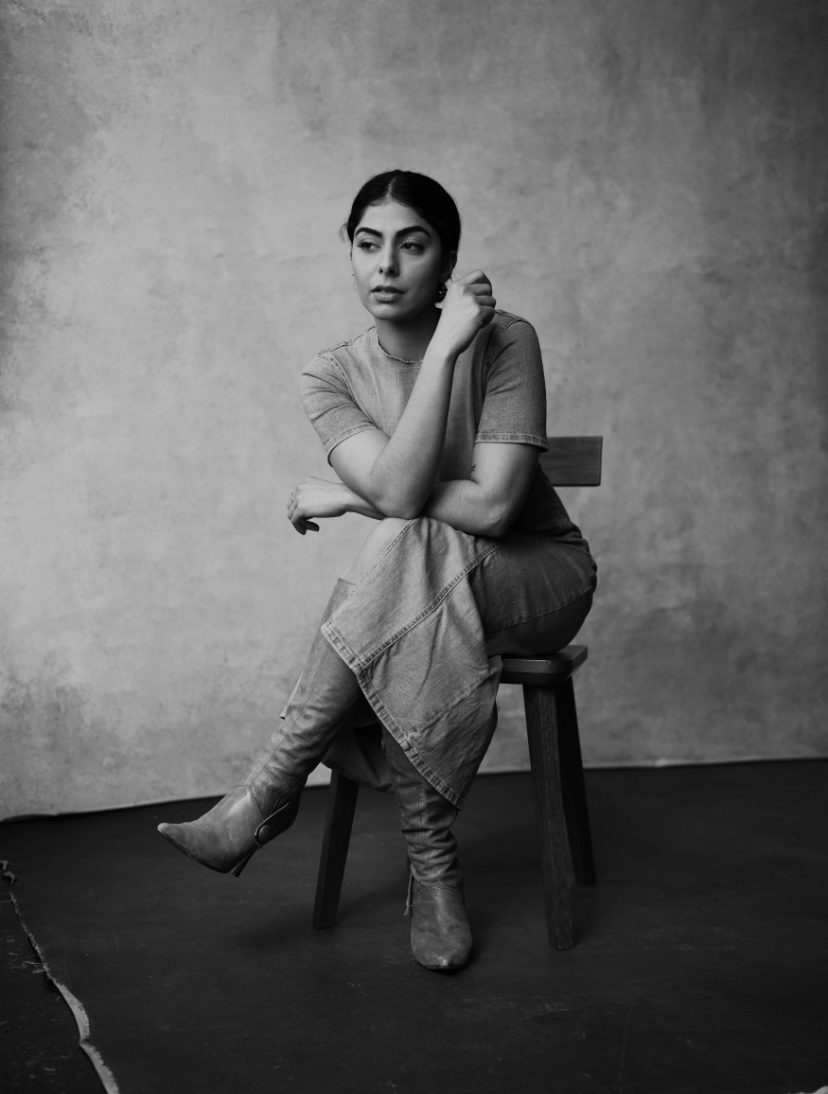
Phil Sharp / Image credit: Phil Sharp
What advice would you give to actors of South Asian heritage about pursuing a career in the arts?
This really can be a tough gig, so maybe we should listen to our parents and go get that corporate job. There’s room to do both, if you can. I have worked with South Asian actors who have honoured both the academic and creative qualities within themselves and consequently supported themselves financially and spiritually. No need to romanticise the struggling artist in this economy.
Also, there is no ‘one way’ to be South Asian in the arts. First of all, we’re talking about a whole continent of people, so don’t let people box you into their idea of being South Asian, or the idea that you can only show up as South Asian in these spaces. Identity is fluid, particularly for those from the diaspora. Stay true to yourself – you only have yourself to answer for.
Is there anything you do between roles to keep your creativity flowing?
It can be really hard and to be real, I can’t say I’ve mastered this. But what I’ve noticed helps me, as a lover of most arts, is trying to absorb as much of it as possible. It helps me keep my own ideas alive and gives me new bursts of inspiration when it can run dry.
I love learning about different artists’ personal journeys as a way to comprehend my own, especially if you don’t have a community around you to support you through the tougher times. More recently, I’ve come to understand how important holistic living is to me. Movement, journaling, being in nature and slowing down are ways to stay open, receptive and flowing along with life.
Finally, are there any aspirations you have for your career ahead?
I consider my driving force to be exploring and celebrating women’s identities and experiences, particularly those from global majority backgrounds, in order to subvert harmful narratives and allow for movement both inside and outside the boundaries that have been set for us.
I hope my work can create a space of connection and healing, allowing us to claim our realities. I also feel the same about immigrant stories. I’m currently interested in the mythical and spiritual narratives that are presented in contemporary contexts as a way to examine the relationship between the past and present and decolonising our history. And just to bring people a bit of joy in these upside-down times, something to take the edge off.
Thank you to Kerena for taking the time to speak with us.
Take a look at our website for more interviews with performers, casting directors and agents.
‘100 Nights of Hero’ will be the closing film of the Venice Critics’ Week at the 82nd Venice Film Festival in September.
You can find out more about Kerena’s work on her website www.kerenajagpal.com or follow her on Instagram @kerenajagpal
 Karen is a British actor of south Asian descent, born and raised in Birmingham, England. She is a graduate of The American Academy of Dramatic Arts in Manhattan, New York. Most notably known for her role as Nicole Shelley in the award winning Apple TV+ series Ted Lasso starring opposite Jason Sudeikis, Hannah Waddingham, Brett Goldstein and Nick Mohammed. She also played Noreen Khan in the first two seasons of the BBC television series Phoenix Rise.
Karen is a British actor of south Asian descent, born and raised in Birmingham, England. She is a graduate of The American Academy of Dramatic Arts in Manhattan, New York. Most notably known for her role as Nicole Shelley in the award winning Apple TV+ series Ted Lasso starring opposite Jason Sudeikis, Hannah Waddingham, Brett Goldstein and Nick Mohammed. She also played Noreen Khan in the first two seasons of the BBC television series Phoenix Rise.
In Theatre, Karen starred in Ayad Akhtar’s The Who and the What at The English Theatre of Hamburg in Germany and performed opposite Scottish actor Alan Cumming in the original musical Me and the girls directed by Tony award winner Douglas Carter Beane. She has also played leading roles in regional premieres of David Harrower’s Blackbird and Duncan Macmillan’s People, Places and Things. In 2022 she was directed by Iqbal Khan in Mismatch at The Birmingham Rep as part of the Sky Comedy Rep Festival. Her other credits include lead roles in Camel written by Charly Clive, Welcome to Thebes, As you like it, Lysistrata, 4.48 Psychosis, The Tempest, Good Fit, She Kills Monsters, American As, Julius Caesar for The Public Theater at Shakespeare in the Park and Journey to America at the world famous Carnegie Hall, New York.
Karen’s selected work on film includes starring in The Waves for MTV Entertainment directed by BAFTA award winner Sindha Agha, Man on the Phone for Red Bear Films and Frank’s Plan for Amazon Prime. She has also appeared in commercials for Aramco, WhatsApp with Alex Scott, TK Maxx, West Midlands Combined Authority and Northwell Health Insurance in New York. She recently performed at the An Tain Arts Centre in Dundalk, Ireland in Why are you here? Directed by Paul Hayes.
Headshot credit: Andy Brown
